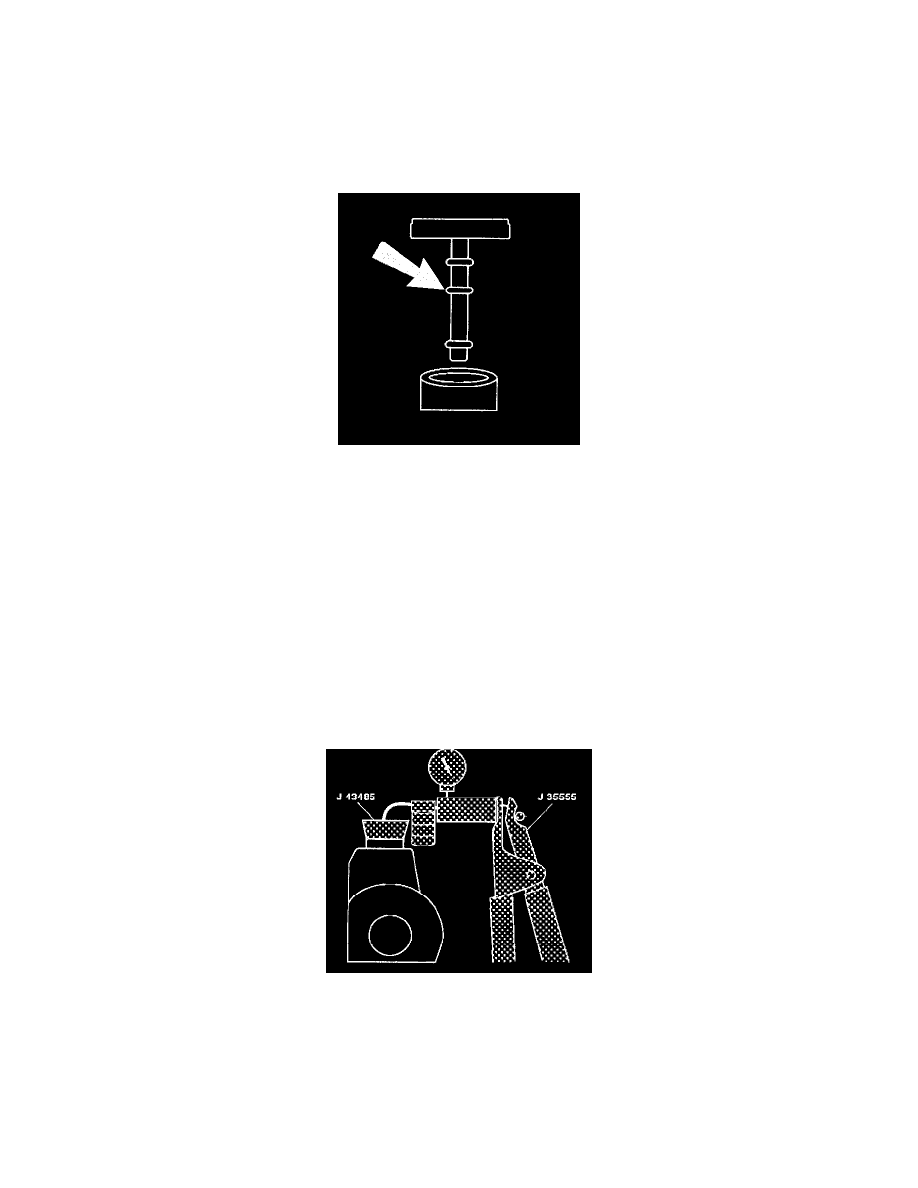Savana 3/4 Ton Van V8-5.3L VIN T (2003)

Power Steering Bleeding: Service and Repair
Bleeding the Power Steering System
Tools Required
-
J35555 Metal Mityvac
-
J43485 Power Steering Bleeder Adapter
Important: Hoses touching the frame, body, or engine may cause system noise.
1. Verify that the hoses do not touch any other part of the vehicle.
Important: Loose connections may not leak, but could allow air into the steering system.
2. Verify that all hose connections are tight.
Notice: If the power steering system has been serviced, an accurate fluid level reading cannot be obtained unless air is bled from the steering system
The air in the fluid may cause pump cavitation noise and may cause pump damage over a period of time.
Important: Maintain the fluid level throughout the bleed procedure.
3. Remove the pump reservoir cap.
Important: Use clean, new power steering fluid only.
4. Fill the pump reservoir with fluid to the FULL COLD level.
5. Attach the J43485 to the J35555 or equivalent.
6. Place the J43485 on or in the pump reservoir filler neck.
7. Apply a vacuum of 68 kPa (20 in Hg) maximum.
8. Wait 5 minutes. Typical vacuum drop is 7 - 10 kPa (2 - 3 in Hg). If the vacuum does not remain steady, refer to Excessive Vacuum Drop
Diagnosis.
9. Remove the J43485 and the J35555.
10. Reinstall the pump reservoir cap.
11. Start the engine. Allow the engine to idle.
12. Turn off the engine.
